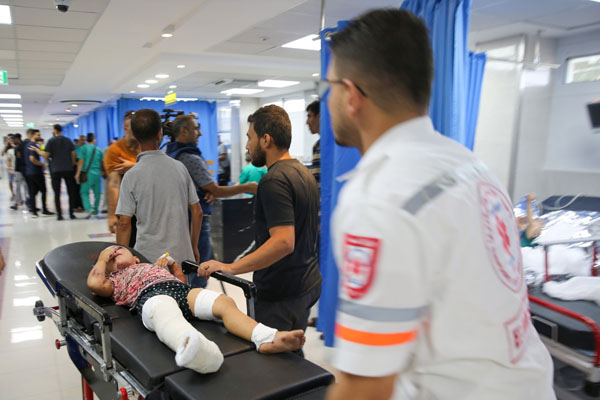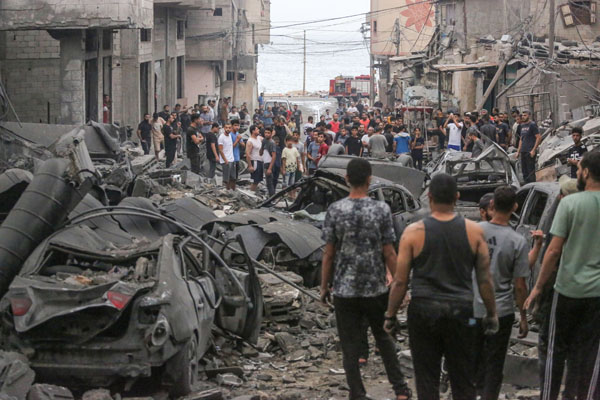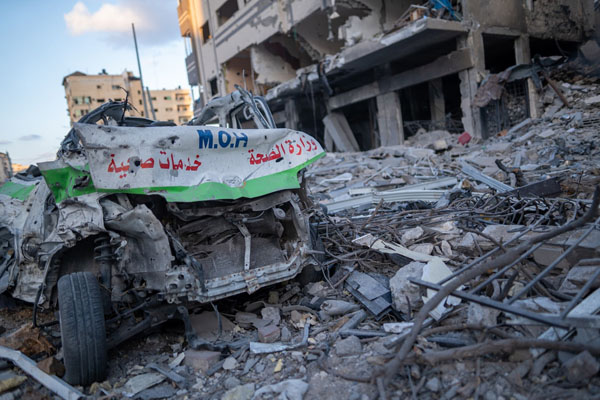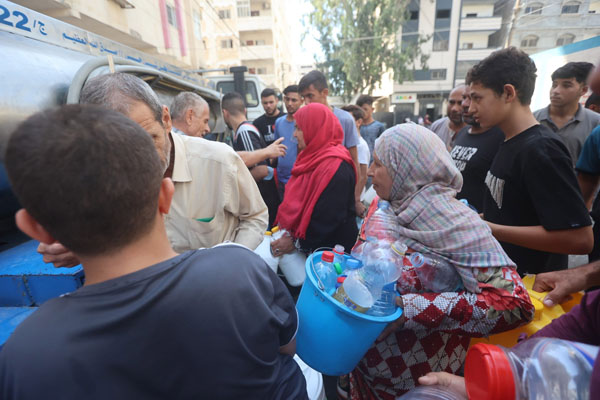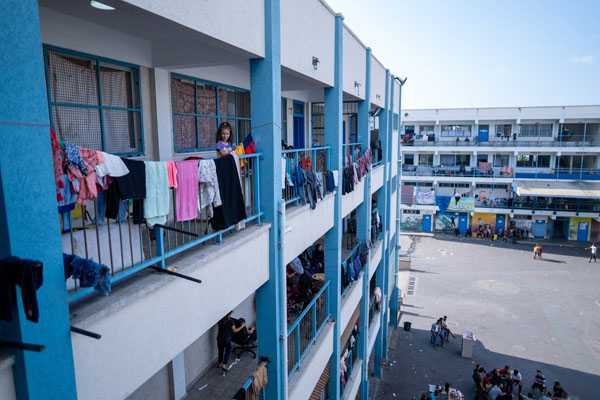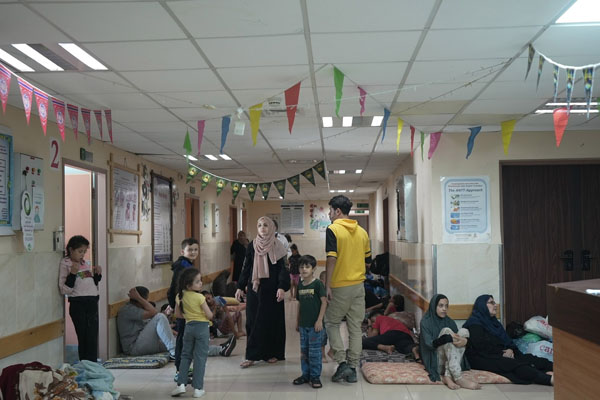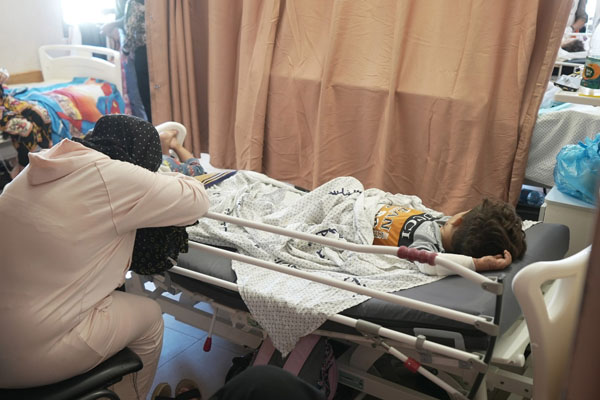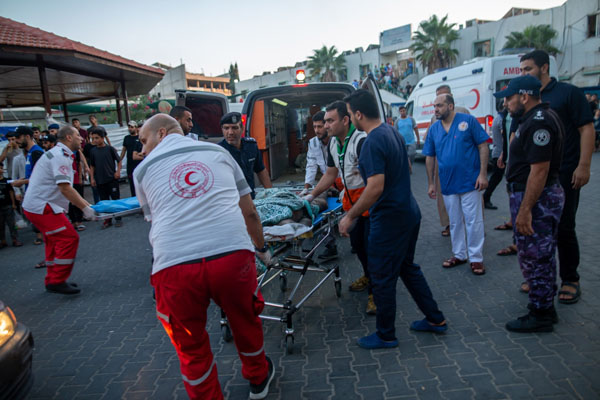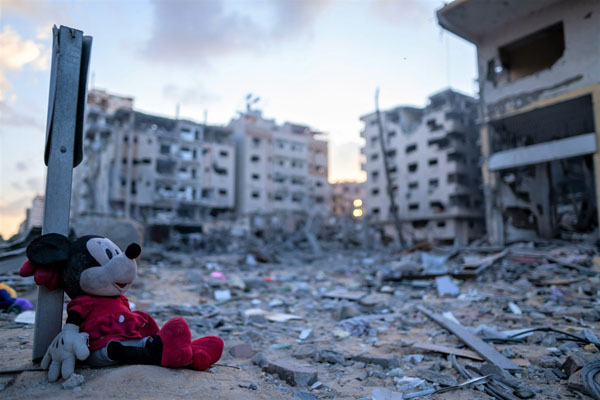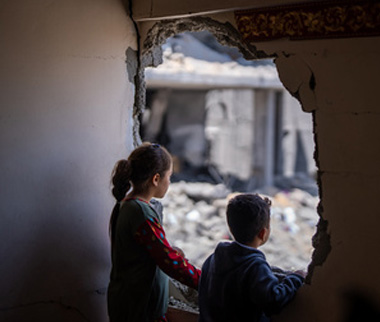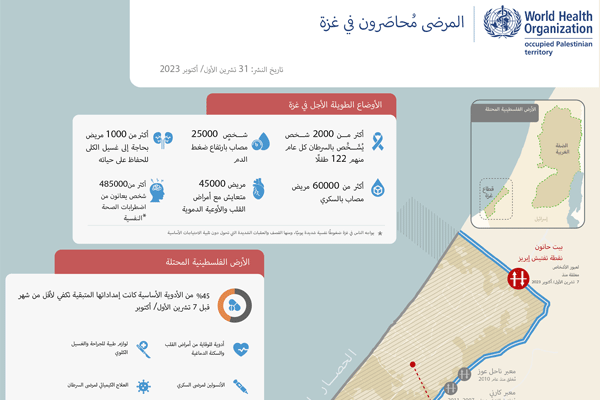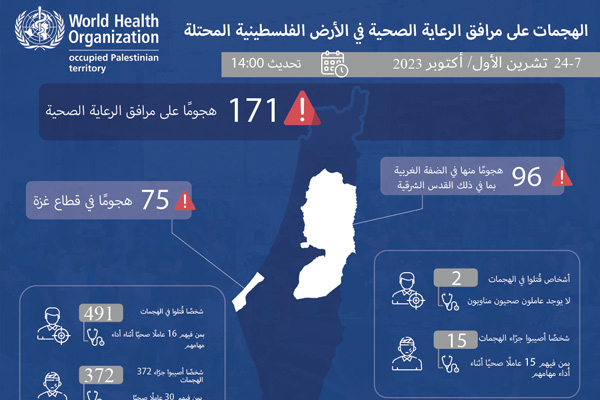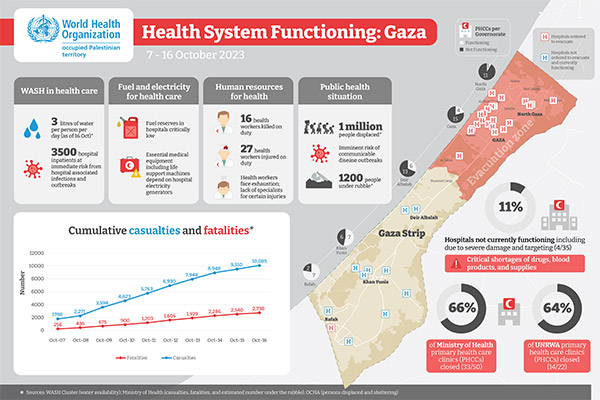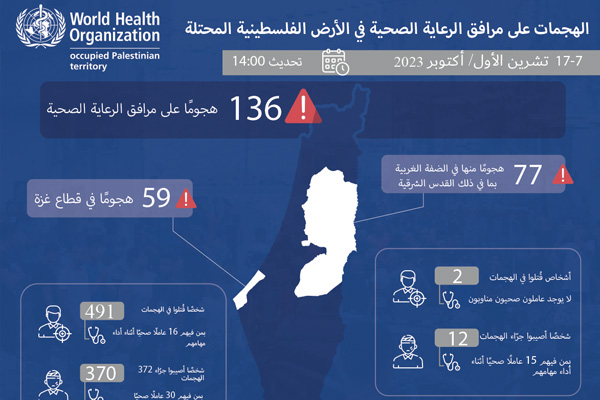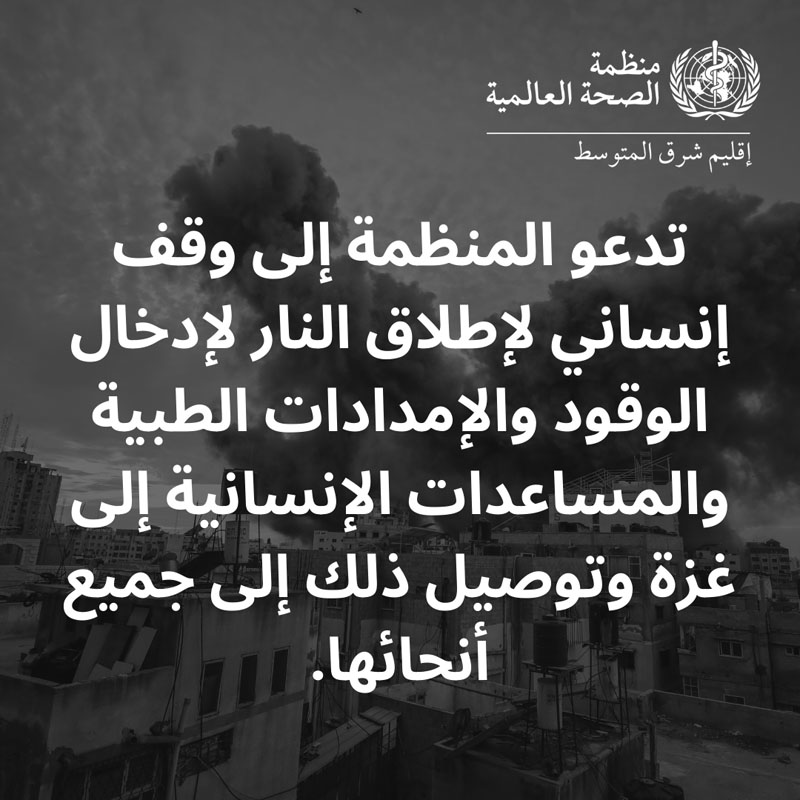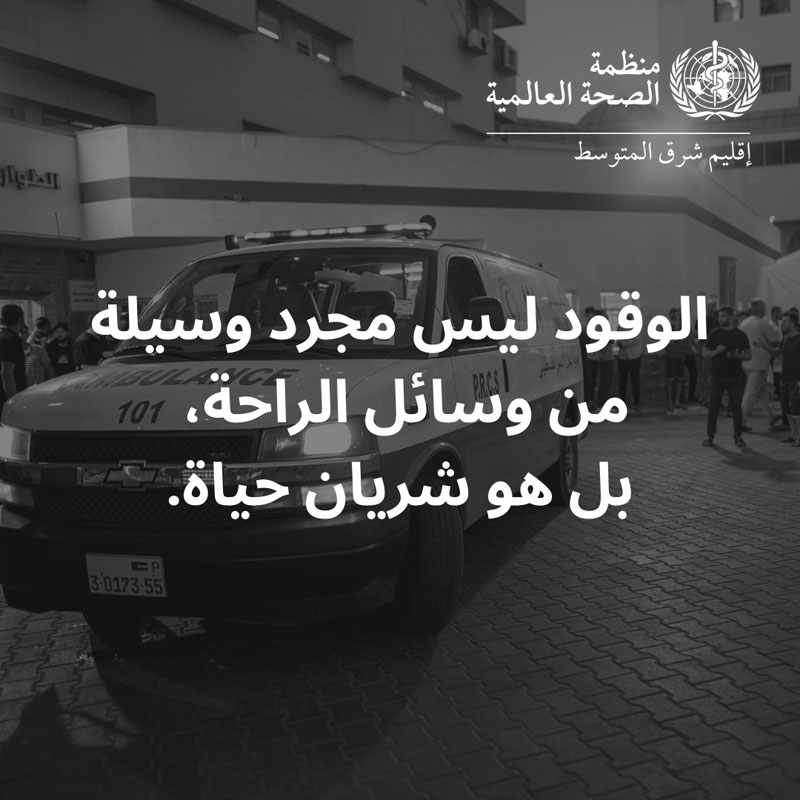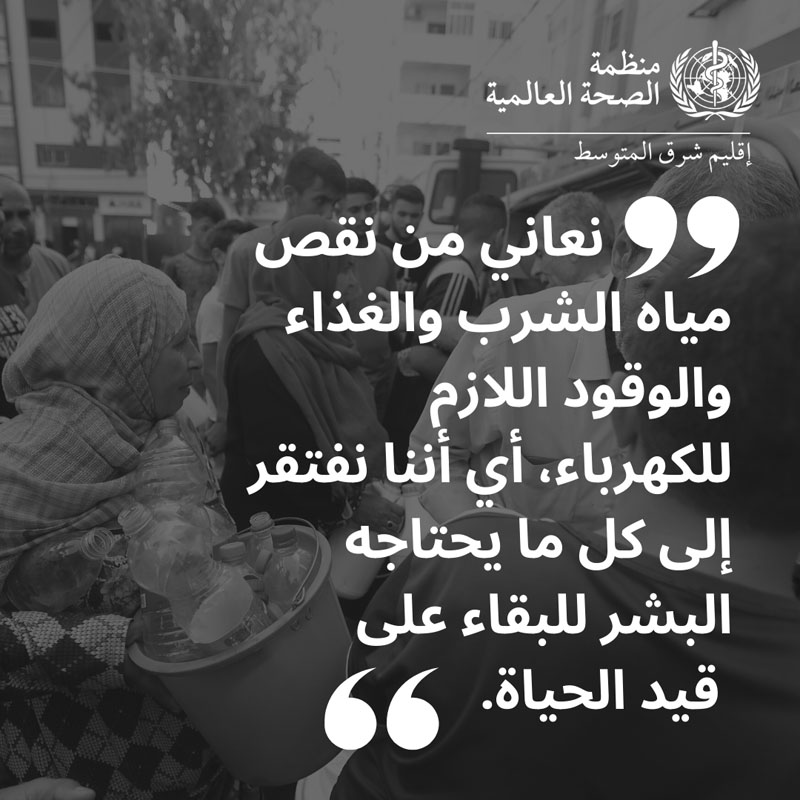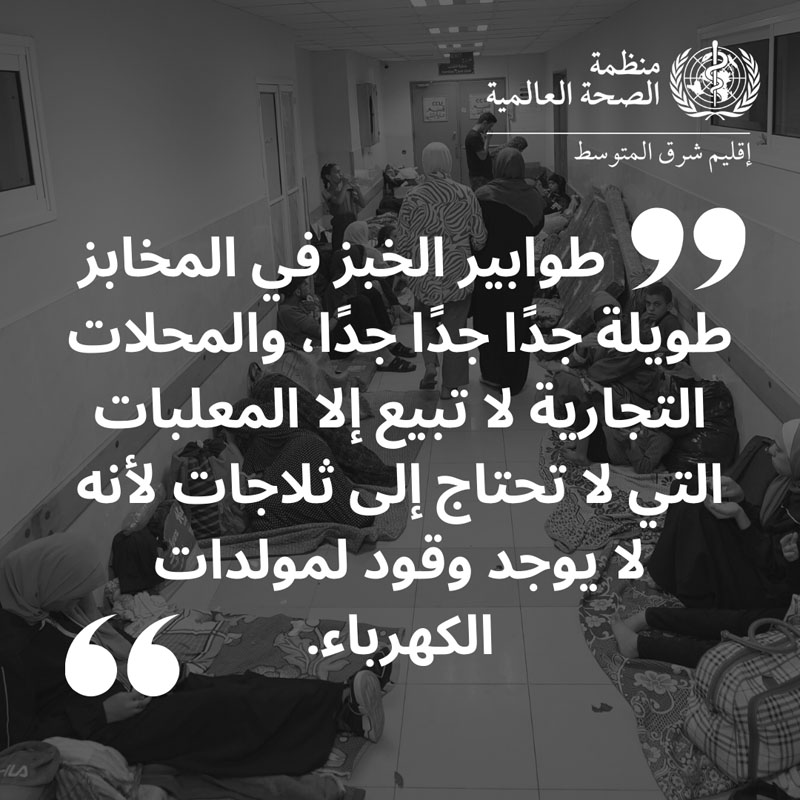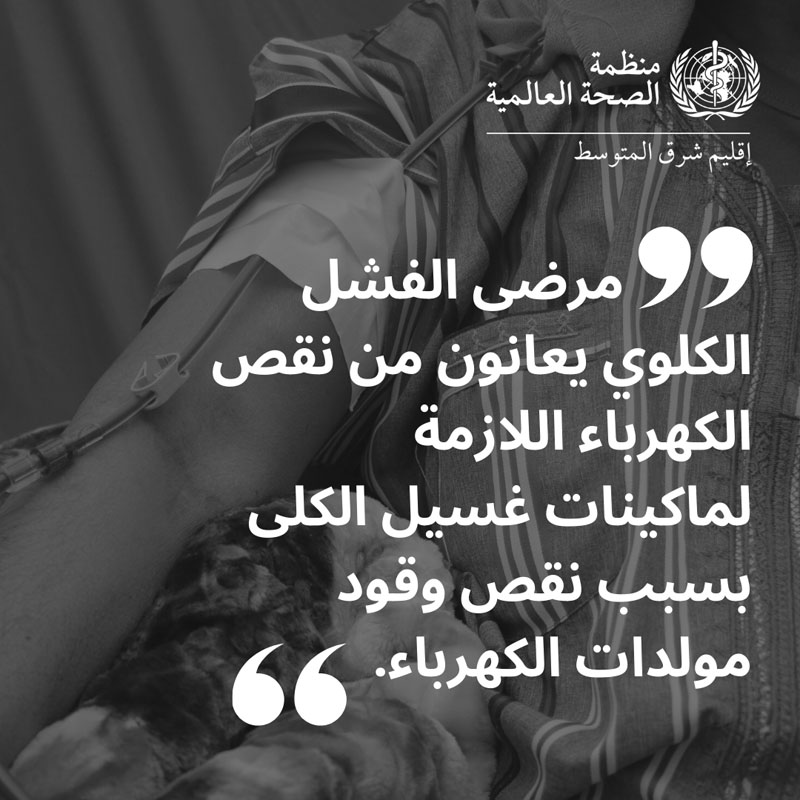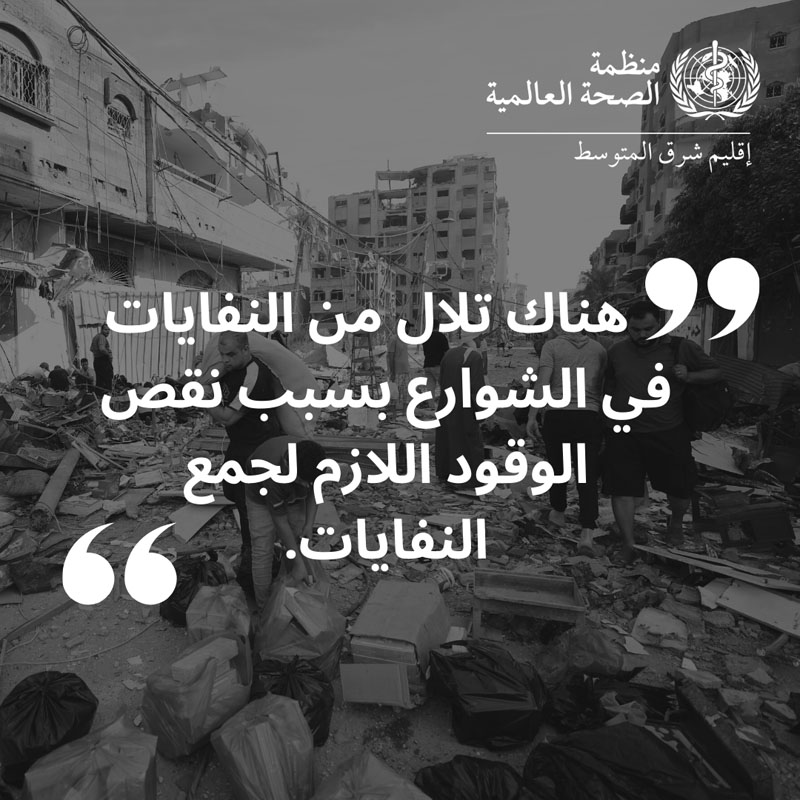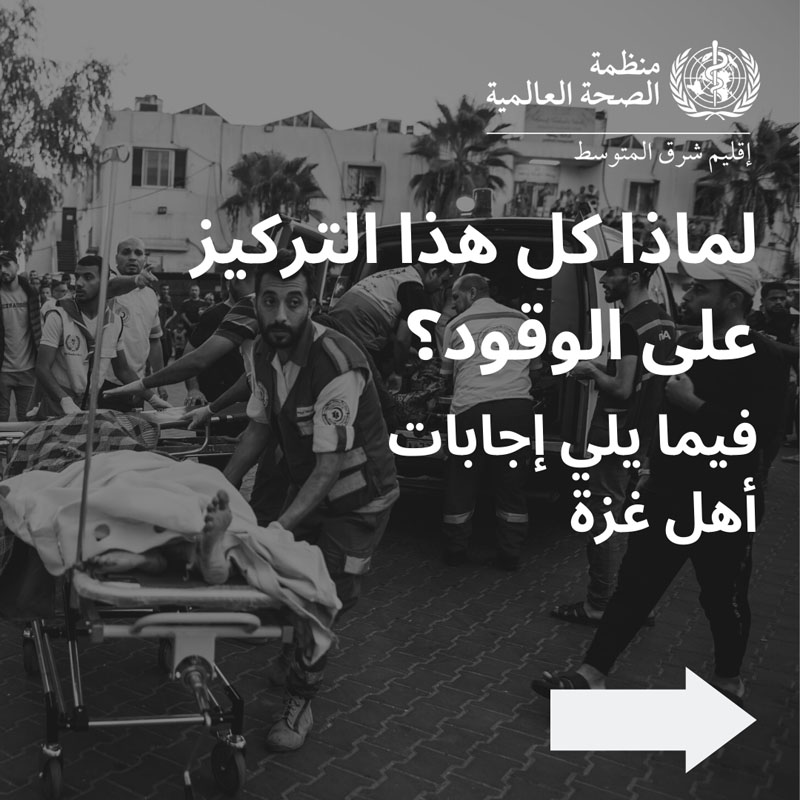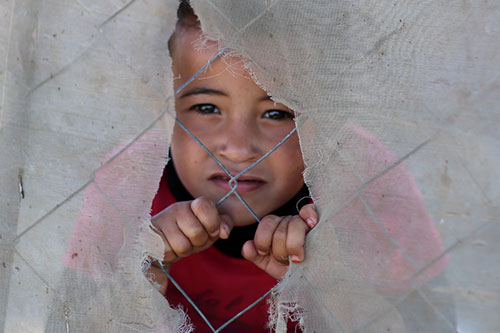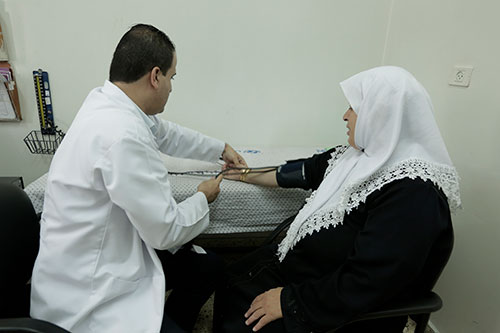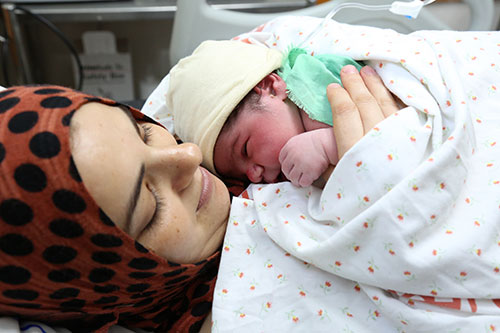منذ 7 تشرين الأول/ أكتوبر 2023، تسببت الأزمة المتصاعدة في إسرائيل والأرض الفلسطينية المحتلة في وقوع أعداد كبيرة من القتلى والمصابين بين المدنيين.
وفي قطاع غزة، أدت الغارات الجوية ونقص الإمدادات الطبية والأغذية والمياه والوقود إلى استنزاف النظام الصحي الذي كان يعاني من نقص الموارد من قبل ذلك. فالمستشفيات تعمل بما يتجاوز طاقتها بسبب تزايد أعداد المرضى، فضلًا عن المدنيين النازحين الذين يلتمسون المأوى في تلك المستشفيات. وقد تأثر تقديم الخدمات الصحية الأساسية تأثرًا بالغًا، بدءًا من رعاية الأمهات والمواليد وانتهاءً بعلاج الحالات المزمنة.
نداء منظمة الصحة العالمية
نداء تمويل لعدة بلدان: الأرض الفلسطينية المحتلة ومصر ولبنان والجمهورية العربية السورية والأردن
منذ 7 تشرين الأول/ أكتوبر 2023، تسببت الأزمة المتصاعدة في إسرائيل والأرض الفلسطينية المحتلة في وقوع أعداد كبيرة من القتلى والمصابين بين المدنيين.
وفي قطاع غزة، أدت الغارات الجوية ونقص الإمدادات الطبية والأغذية والمياه والوقود إلى استنزاف النظام الصحي الذي كان يعاني من نقص الموارد من قبل ذلك. فالمستشفيات تعمل بما يتجاوز طاقتها بسبب تزايد أعداد المرضى، فضلًا عن المدنيين النازحين الذين يلتمسون المأوى في تلك المستشفيات. وقد تأثر تقديم الخدمات الصحية الأساسية تأثرًا بالغًا، بدءًا من رعاية الأمهات والمواليد وانتهاءً بعلاج الحالات المزمنة.
الأخبار
دعوة مشتركة من المديرين الإقليميين لصندوق الأمم المتحدة للسكان واليونيسف ومنظمة الصحة العالمية إلى تحرك فوري لوقف الهجمات على الرعاية الصحية في غزة
12 تشرين الثاني/نوفمبر 2023
المنظمة تفقد الاتصال بمستشفى الشفاء في غزة وسط تقارير عن تعرضه لهجمات
12 تشرين الثاني/نوفمبر 2023
إجلاء بعض الأطفال المصابين بالسرطان من غزة للعلاج في مصر والأردن
10 تشرين الثاني/نوفمبر 2023
ارتفاع خطر انتشار الأمراض في غزة مع تعطل المرافق الصحية وشبكات المياه والصرف الصحي
8 تشرين الثاني/نوفمبر 2023
منظمة الصحة العالمية: الهجمات على الرعاية الصحية في قطاع غزة غير مقبولة
4 تشرين الثاني/ نوفمبر 2023
منظمة الصحة العالمية ترحب بقرار مصر استقبال مرضى من قطاع غزة
1 تشرين الثاني/ نوفمبر 2023
نداء تمويل لعدة بلدان: الأرض الفلسطينية المحتلة ومصر ولبنان والجمهورية العربية السورية والأردن
27 تشرين الأول/ أكتوبر 2023
مع بداية نظام انهيار النظام الصحي في غزة: المنظمة تدعو إلى السماح بمرور الوقود والإمدادات الآمنة من أجل المرافق الصحية
24 تشرين الأول/ أكتوبر 2023
إمدادات صحية من المنظمة تتحرك باتجاه غزة
21 تشرين الأول/ أكتوبر 2023
بيان مشترك صادر عن برنامج الأمم المتحدة الإنمائي وصندوق الأمم المتحدة للسكان واليونيسف وبرنامج الأغذية العالمي ومنظمة الصحة العالمية بشأن دخول إمدادات إنسانية إلى غزة
21 تشرين الأول/ أكتوبر 2023
بيان منظمة الصحة العالمية بشأن الهجوم على مستشفى الأهلي العربي والإصابات الكبيرة التي نتجت عنه
18 تشرين الأول/ أكتوبر 2023
المنظمة تقدم إمدادات طبية إلى لبنان مع تصاعد العنف في الأرض الفلسطينية المحتلة
15 تشرين الأول/ أكتوبر 2023
إمدادات منظمة الصحة العالمية الصحية المنقذة للحياة تصل إلى مصر لتلبية احتياجات السكان في غزة
14 تشرين الأول/ أكتوبر 2023
أوامر إسرائيل بإخلاء المستشفيات في شمال غزة هي حكم بالإعدام على المرضى والمصابين
14 تشرين الأول/ أكتوبر 2023
المنظمة تناشد إسرائيل إلغاء أوامر إخلاء غزة لحماية صحة سكانها والحد من معاناتهم
13 تشرين الأول/ أكتوبر 2023
منظمة الصحة العالمية تحذر: المستشفيات في قطاع غزة على وشك الانهيار
12 تشرين الأول/ أكتوبر 2023
منظمة الصحة العالمية تدعو إلى إتاحة المساعدات الصحية المحلية والإنسانية في اليوم الرابع من النزاع في إسرائيل والأرض الفلسطينية المحتلة
10 تشرين الأول/ أكتوبر 2023
تقارير الحالة
العدد التاسع، 30 تشرين الأول/ أكتوبر 2023
العدد الثامن، 25 تشرين الأول/ أكتوبر 2023
العدد السابع، 23 تشرين الأول/ أكتوبر 2023
العدد السادس، 21 تشرين الأول/ أكتوبر 2023
العدد الخامس، 18 تشرين الأول/ أكتوبر 2023
العدد الرابع، 15 تشرين الأول/ أكتوبر 2023
العدد الثالث، 12 تشرين الأول/ أكتوبر 2023
العدد الثاني، 10 تشرين الأول/ أكتوبر 2023
لعدد الأول، 8 تشرين الأول/ أكتوبر 2023
بيان المدير الإقليمي
تصريحات المدير الإقليمي في أثناء الإحاطة الإعلامية بشأن الطوارئ الصحية
الرسوم التوضيحية
بطاقات وسائل التواصل الاجتماعي
أصواتٌ من الميدان
الصور
